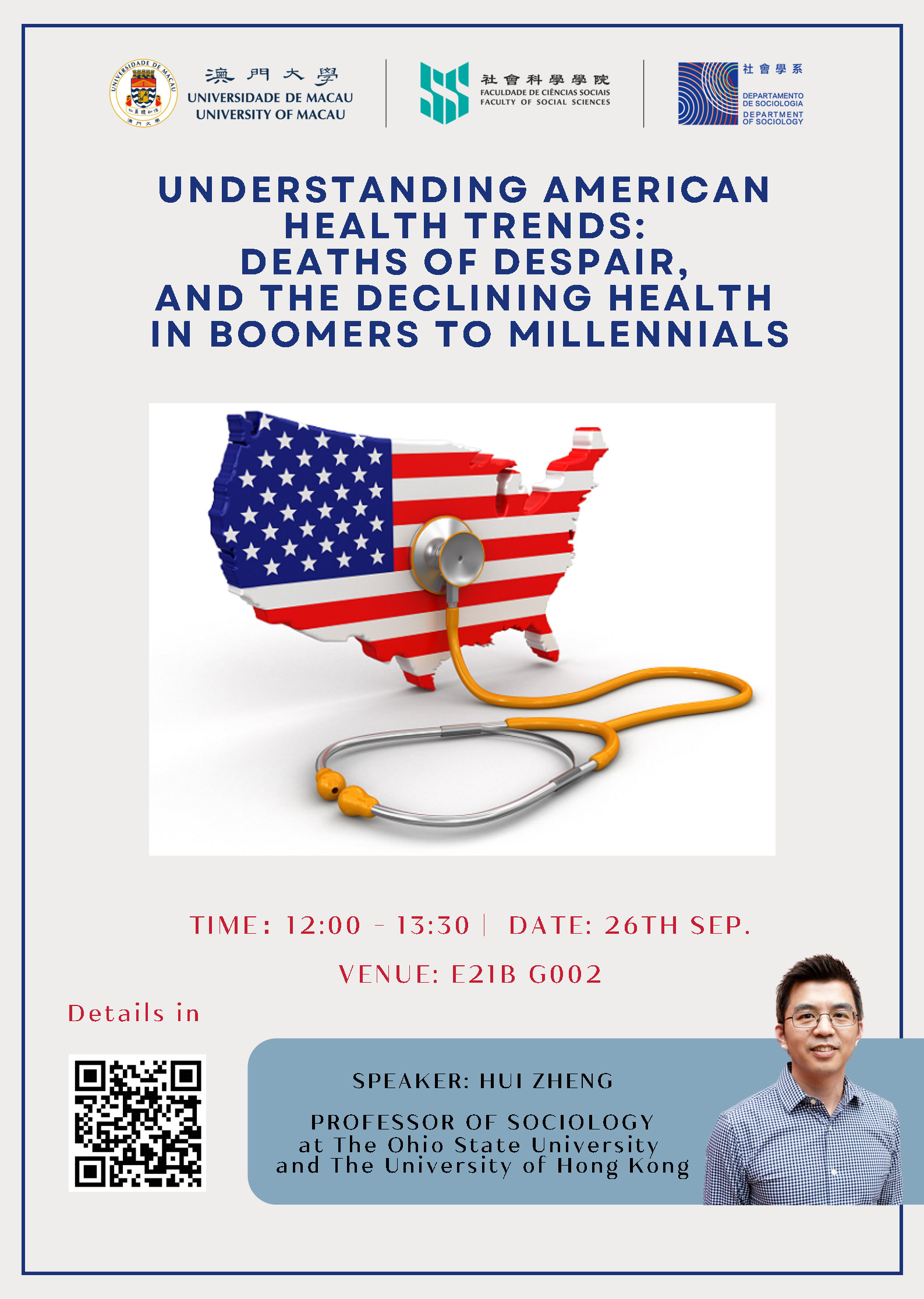
Date: September 26
Time: 12:00 pm – 1:30 pm
Speaker: Prof. Hui ZHENG
Venue: E21B-G002
Organizer: Department of Sociology
Phone: 8822 4595
U.S. population health faces many challenges, including increasing morbidity and stagnating life expectancy. Against this backdrop, I will evaluate Case and Deaton’s “Deaths of Despair” narrative and analyze the cohort health trend. The first study directly investigates despair as a determinant of death and the temporal variation and racial heterogeneity therein. This endeavor will elucidate (1) whether drug-, alcohol-, and suicide-related (DAS) deaths, which Case and Deaton and many other researchers have focused on, over- or under-estimate the impact of despair on mortality; and (2) whether the trend of DAS-related death is driven by despair and how this pattern may vary by race and ethnicity. The second study investigates whether the increasing morbidity and mortality among middle-aged and young-old Americans since the turn of the century has been extended to younger cohorts. I explore conditions from birth to the present by investigating the nutrition, health, socioeconomic, psychological, and bio-behavioral factors throughout the life course across multiple birth cohorts. I probe both protective resources that might advantage recent cohorts and risk factors that might disadvantage recent cohorts. By doing so, we gain a preliminary but plausible account of what may or may not contribute to adverse cohort health trends, and what disadvantages may offset advantages to which recent cohorts are subjected. To wrap up, I will discuss the policy implications from these two studies.
Hui Zheng is a professor of sociology at The Ohio State University and The University of Hong Kong. His research focuses on understanding the causes, heterogeneity, inequality, and trends of population health and aging. It encompasses two interconnected areas: social and policy determinants of health, and population process of aging and mortality. He has investigated health consequences of various social structures, institutions, and policies; the trends of socioeconomic and demographic disparities in health; trend and heterogeneity in aging, mortality, and life span; the impact of life course dynamics of obesity on mortality; and the role of selection in health production and aging process. Methodologically, he is interested in developing and evaluating statistical and demographic methods to investigate the interplay of social-epidemiological changes, population dynamics and population heterogeneity on the trends and disparities in health, mortality and life expectancy. Current projects investigate 1) the rising health challenges in the U.S.; 2) determinants and consequences of cognitive aging across the life course; and 3) nativity disparities in labor market, aging, and health. His work is supported by grants from CDC (National Center for Health Statistics) and NIH (NIA, NICHD), and has received awards from American Sociological Association and IPUMS.

